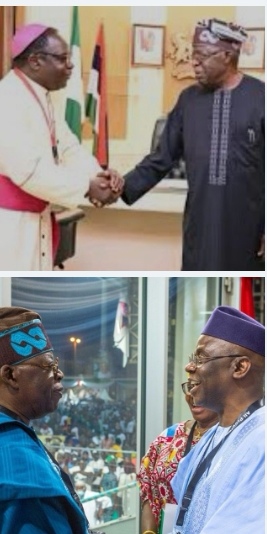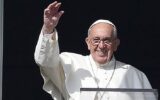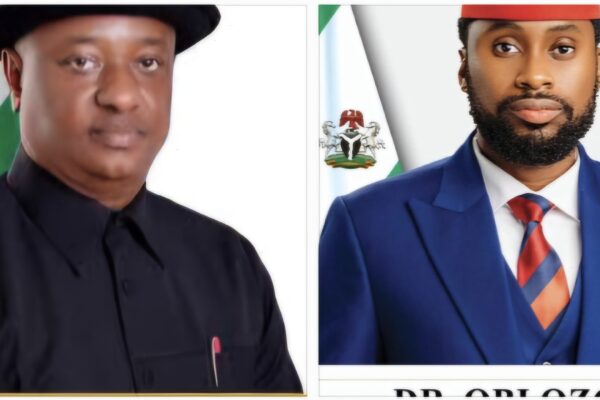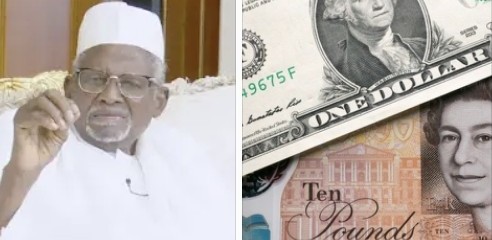As Nigeria marked Easter in 2025, two of the nation’s most respected voices—Bishop Matthew Kukah and Pastor Tunde Bakare—issued messages not only to their congregations but to a weary nation. Their Easter reflections transcended the pulpit and entered the heart of national discourse, drawing attention to the deep fractures within our society and the urgent need for responsive leadership.
Two Voices, One Nation in Pain
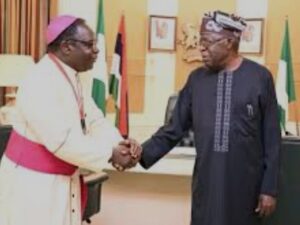 Bishop Kukah, in his characteristically poetic and theological tone, titled his message “Mr President, Bring Us Down From This Cross.” It was as much a cry of anguish as it was a plea for mercy. He used the image of the crucifix to reflect the collective suffering of Nigerians—left hanging, bleeding, and unheard. His message was not accusatory but revelatory, acknowledging that President Tinubu did not create all of Nigeria’s problems, but urging him to take bold and moral steps to relieve the nation’s agony.
Bishop Kukah, in his characteristically poetic and theological tone, titled his message “Mr President, Bring Us Down From This Cross.” It was as much a cry of anguish as it was a plea for mercy. He used the image of the crucifix to reflect the collective suffering of Nigerians—left hanging, bleeding, and unheard. His message was not accusatory but revelatory, acknowledging that President Tinubu did not create all of Nigeria’s problems, but urging him to take bold and moral steps to relieve the nation’s agony.
Kukah’s appeal was spiritual and symbolic: we are a people enduring a Good Friday with no sign of Easter Sunday. His references to Pope Francis’ Year of Hope reminded us that faith without action is futile. He called on the President to show “moral clarity,” “discipline,” and “sensitivity,” qualities sorely lacking in the governance of today.
 Pastor Tunde Bakare, on the other hand, took a more assertive and politically charged route. From his Lagos pulpit, he delivered a blistering critique under the theme “Let the People Know the Truth and the Country is Safe.” Bakare warned against the creeping authoritarianism in Nigeria, accusing those in power of attempting to “play God” and dragging the nation into a dangerous future.
Pastor Tunde Bakare, on the other hand, took a more assertive and politically charged route. From his Lagos pulpit, he delivered a blistering critique under the theme “Let the People Know the Truth and the Country is Safe.” Bakare warned against the creeping authoritarianism in Nigeria, accusing those in power of attempting to “play God” and dragging the nation into a dangerous future.
He condemned the National Assembly as a “haven of legislative rascality” and questioned the silence and inaction of those elected to protect the people. His frustration was palpable. Here was a man who once stood beside President Tinubu and offered counsel, now lamenting that such advice had been ignored, and the people betrayed.
Shared Pain, Divergent Styles
While the delivery of their messages differed—Kukah’s being meditative and theological, Bakare’s fiery and prophetic—both converged on a stark truth: Nigeria is bleeding, and the people are exhausted.
They spoke of rising hunger, deepening insecurity, moral and structural decay, and a youth population robbed of hope. They asked hard questions of a government seemingly divorced from the struggles of the common man.
And yet, neither man sought to despair. Beneath their sharp words was a call to redemption—a belief that Nigeria can still rise, if only those in power embrace humility, justice, and vision.
The Role of the Prophetic Voice
In times of crisis, the prophetic voice becomes more than a sermon—it becomes a mirror to power. Kukah and Bakare, each in their own way, have dared to speak truths that many within government circles would rather ignore.
But their messages are not simply for President Tinubu or the ruling elite. They are for every Nigerian—reminding us that silence is not neutrality, and apathy is not peace. We must all ask ourselves: what role do we play in lifting Nigeria off this cross?
As Easter fades and the daily struggles return, their words linger—cutting, comforting, convicting. Perhaps that is their greatest gift to us this season: not a temporary uplift, but a lasting challenge to act, to speak, and to hope again.
Cmrd. Musa Ola writes from Nigeria
—————————————————————————————————————————————
Your help to our media platform will support the delivery of the independent journalism and broadcast the world needs. Support us by making any contribution. Your donation and support allows us to be completely focus, deeply investigative and independent. It also affords us the opportunity to produce more programmes online which is a platform universally utilised.
Thank you.
Please click link to make – DONATION



